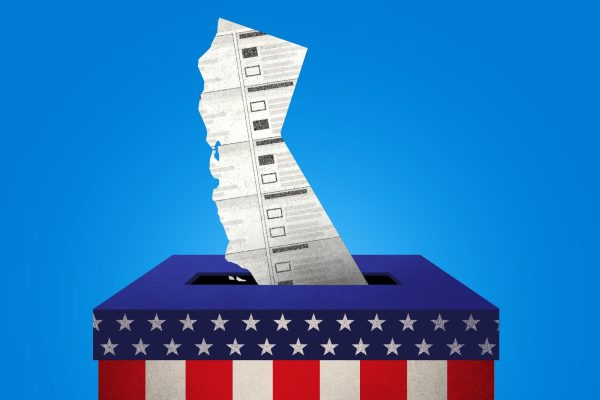Reflecting on Biden’s State of the Union Address Amid a Slew of Anti-Transgender Legislation
President Joe Biden delivered his first State of the Union address on Tuesday, March 1, 2022. This speech came as Biden juggled the second-lowest approval ratings a U.S. president has ever had, a divided nation, and the call to defend Ukraine from Russian invasion.
Many topics were discussed throughout the nearly 70-minute long speech, but some that stood out included how the U.S. is supporting Ukraine, Biden’s plan to build a better America, the future of the Covid-19 pandemic, and perhaps most notably, Biden calling on Congress to pass bills such as the Equality Act.
This marks the strongest push Biden has made yet for legislation that during his presidential campaign he promised to sign within his first 100 days in office.
Only three months into 2022, more than 50 anti-transgender or gay legislation have been introduced in various states throughout the nation.
Florida’s House Bill 1557, nicknamed the “Don’t Say Gay” bill, picked up nationwide uproar but still passed in the Florida Senate on March 8, dictating that Florida schools cannot have discussions about sexual orientation or gender identity in classrooms up to third grade. Florida governor’s press secretary Christina Pushaw played into the anti-LGBTQ ideas behind the bill even further when she called it the “Anti-Grooming Bill” in a tweet, pushing the harmful platitude that all gay or transgender people are inherently pedophiles.
In February, a letter from Texas governor Greg Abbott instructing the Texas Department of Family and Protective Services to investigate parents of transgender children if they allow their child to receive gender-affirming care.
Other states have introduced similar legislation, like Idaho’s House Bill 675. The bill was passed in the House, and if passed in the Senate will make it a felony for parents of transgender children to allow their child to receive gender-affirming care or leave the state to receive such care, classifying it as “mutilation”.
In his State of the Union address, Biden called on Congress to pass the Equality Act. If passed, the Equality Act will prohibit discrimination based explicitly on an individual’s sex, sexual orientation, and gender identity. This bill would amend existing civil rights laws to protect LGBTQ individuals in key areas of life, including but not limited to education, employment, housing, public spaces and services, and federally funded programs.
The Equality Act was passed in the House last February but has yet to be passed in the Senate. In the address, Biden asked Congress to make progress on the bill and get it to his desk, saying “The onslaught of state laws targeting transgender Americans and their families — it’s simply wrong.”
Individuals can be turned away from businesses such as restaurants, denied home loans, and refused healthcare services in over half of the states in the U.S. just for identifying as LGBTQ.
Twenty-nine states have no legislation explicitly preventing discrimination on the basis of an individual’s gender identity or sexual orientation, allowing bills such as the “Don’t Say Gay” bill and the Idaho House Bill to be passed in state governments.
Recent research from The Trevor Project shows that anti-LGBTQ legislation has an impact on LGBTQ youth, with 85% of transgender and nonbinary youth involved in the study saying that their mental health has been negatively affected by recent debates on anti-transgender legislation. Clearly, anti-LGBTQ legislation is not helping any children, but instead further harming youth who already experience higher rates of depression, anxiety, and other mental health issues.
Discriminatory legislation does not and will not solve any critical issues that states may be facing. Instead, they isolate and harm already vulnerable people.
The Equality Act may not provide the radical change many LGBTQ activists have hoped for. However, passing the Equality Act would ensure that LGBTQ individuals around the nation would have secure, consistent rights.
Public support for the Equality Act has continued to grow, with three-fourths of Americans favoring laws that would protect LGBTQ individuals from discrimination in jobs and housing.
In the closing comments of his State of the Union address, Biden stated, “I know this nation. We’ll meet the test, protect freedom and liberty, expand fairness and opportunity. And we will save democracy.”
Protecting freedom and expanding opportunity in this nation is not possible without protecting the civil rights of all Americans, including LGBTQ individuals. Passing the Equality Act is one necessary piece in the path to guaranteeing access to rights regardless of an individual’s sex, sexual orientation, or gender identity.









